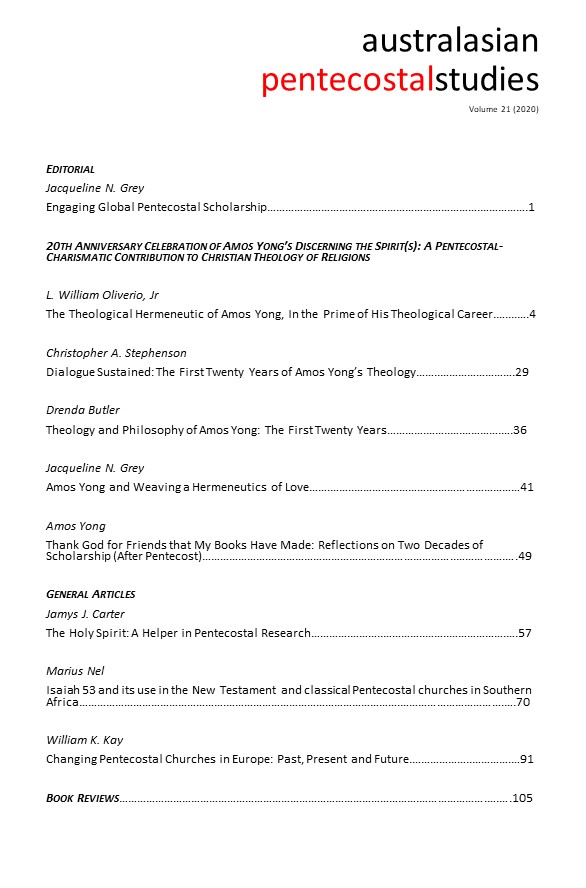Changing Pentecostal Churches in Europe
Past, Present and Future
Abstract
Sociological theories offer a measure of predictive power over the future of Pentecostal churches in Europe. Such theories are preferable to metaphorical descriptions which also implicitly predict likely outcomes. If Europe continues to foster liberal democracy and secular states function as neutral arbiters in countries where competing religious and irreligious groups struggle for influence, one may expect Pentecostal churches to grow and diversify while being open to periodic waves of spiritual renewal.
Downloads
Published
2020-12-06
How to Cite
Kay, W. K. (2020). Changing Pentecostal Churches in Europe: Past, Present and Future. Australasian Pentecostal Studies, 21(1), 91–104. Retrieved from https://aps-journal.com/index.php/APS/article/view/9547
Issue
Section
General Articles
License
Authors who publish with this journal agree to the following terms:
- Authors retain copyright and grant the journal right of first publication with the work simultaneously licensed under a Creative Commons Attribution License that allows others to share the work with an acknowledgement of the work's authorship and initial publication in this journal
- Authors are able to enter into separate, additional contractual arrangements for the non-exclusive distribution of the journal's published version of the work (e.g., post it to an institutional repository or publish it in a book), with an acknowledgement of its initial publication in this journal.
- Authors are permitted and encouraged to post their work online (e.g., in institutional repositories or on their website) prior to and during the submission process, as it can lead to productive exchanges, as well as earlier and greater citation of published work (See The Effect of Open Access).


